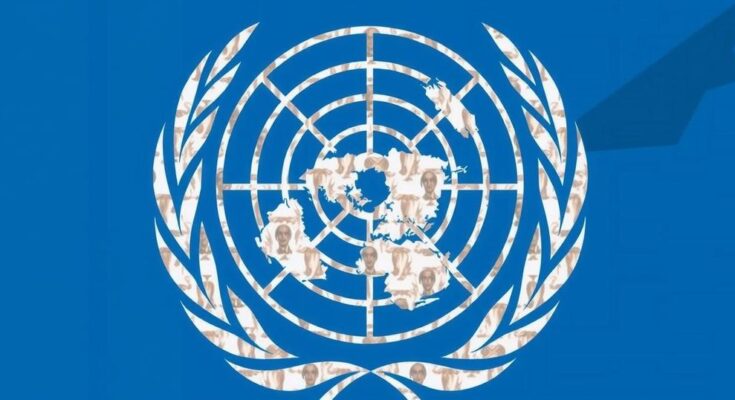UN expert Mai Sato’s report highlights Iran’s grave human rights challenges, including high execution rates, a lack of legal transparency, and gender discrimination. It emphasizes the need for accountability, women’s rights, and calls for Iran to engage more constructively with international bodies. Sato’s findings reveal a troubling landscape post-Mahsa Amini’s protests, urging Iran to ratify critical human rights treaties.
A recent report by the UN’s special rapporteur Mai Sato on Iran’s human rights practices highlights alarming issues such as the high execution rates and suppression of civil liberties. Presented as her first report since taking office in August 2024, Sato calls for greater accountability from the Iranian government and constructive engagement with international human rights organizations. Mai Sato emphasizes key areas of concern including transparency, the right to life, and gender equality. She points out serious deficits in Iran’s justice system, with the judiciary lacking independence and accountability for human rights violations, leading to cruel treatment of detainees. The report reveals that Iran has one of the world’s highest execution rates, with at least 93 executions recorded in August 2024. Sato warns that the International Covenant on Civil and Political Rights, which Iran is a party to, restricts capital punishment to the most serious offenses, which are often misapplied in politically charged cases. The alarming rise in executions reflects the Iranian government’s strategy to instill fear and suppress dissent, particularly following the protests triggered by Mahsa Amini’s death in 2022. Reports indicate a record 853 executions in 2023, marking a significant increase from previous years as the regime seeks to tighten its grip on power. Sato’s report underscores the deteriorating rights of women in Iran due to strict hijab laws. She argues against mandatory hijab imposition, highlighting that the freedom of religion should not come with penalties. Iran’s Guardian Council has approved the controversial Hijab and Chastity Bill, imposing heavy fines that threaten women’s financial stability. In response, the Iranian government asserts that hijab laws protect women’s safety and foster their social participation. However, Sato counters this narrative, asserting that women’s autonomy and safety should not depend on compliance with religious dress codes. While there have been minor reforms in Iran’s penal laws, Sato calls for enhanced collaboration among civil society groups both domestically and internationally to improve the human rights situation. She believes that cumulative steps towards upholding human rights can be identified and assessed holistically for progress. In conclusion, the report urges Iran to reaffirm its commitment to international human rights standards by ratifying essential treaties such as the Convention on the Elimination of All Forms of Discrimination Against Women and the Convention Against Torture.
The state of human rights in Iran has garnered significant international attention, particularly in the wake of governmental actions perceived as oppressive. The recent report by UN expert Mai Sato sheds light on the pressing need for accountability and reform within Iran’s judiciary and governance. The increasing execution rates, particularly of political dissidents, alongside systematic gender discrimination, underscore the urgent call for change and engagement with global human rights standards.
Overall, the findings in Mai Sato’s report depict a chilling human rights landscape in Iran marked by high execution rates, judicial inequity, and systemic gender discrimination. The document underscores the pressing need for Iran to embrace international human rights frameworks and to foster dialogue and reform to protect its citizens’ rights and welfare. The report not only highlights the shortcomings but also calls for increased global accountability and support for civil society initiatives.
Original Source: www.iranintl.com



